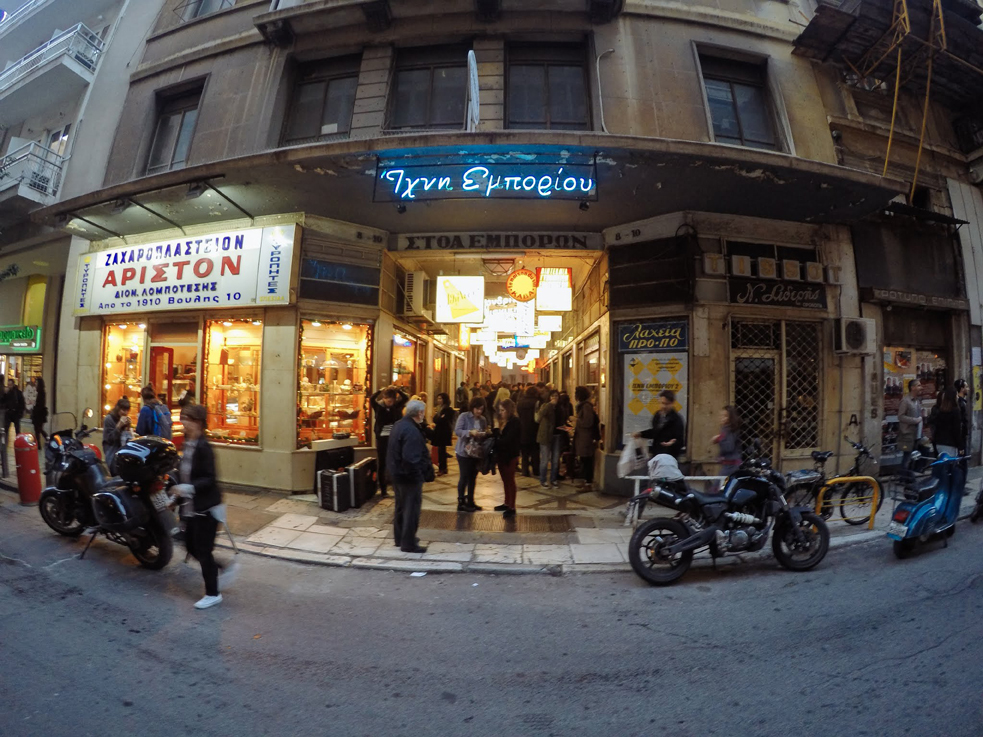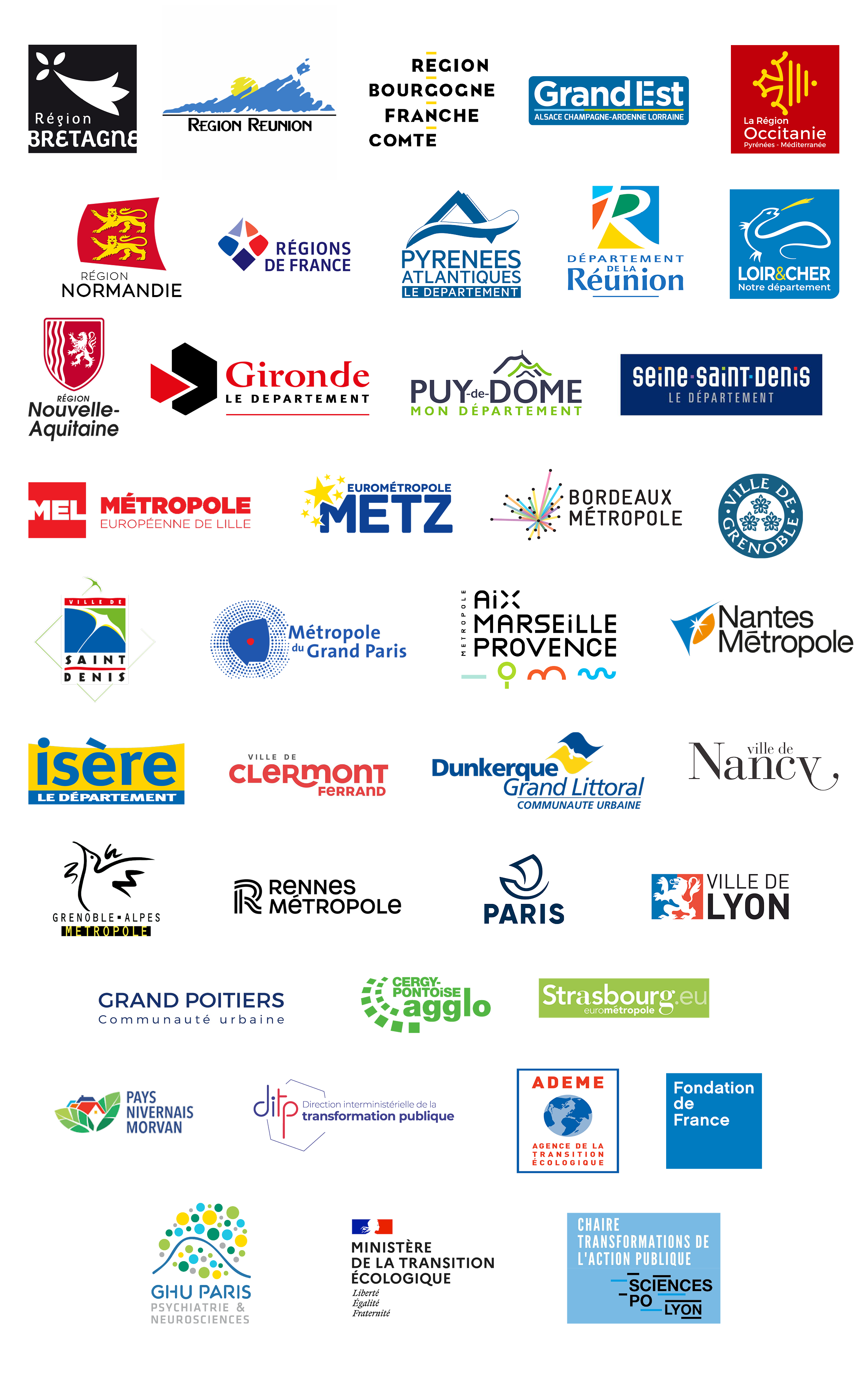Whether public spaces, natural resources or information and knowledge, more and more citizens are organizing themself to manage “commons”. Such initiatives are diverse, from urban commons charters to initiatives around free software, for example. In 2015, we carried out a short research and horizon scanning work to understand better this notion of “commons”. In 2017 and 2018, we pursued this questioning together with several partners: POP, Savoircom1, Esopa Productions, the cities of Brest and Grenoble with the objective of giving it a European dimension. Since then, our project has been selected within the framework of the EU Erasmus + program, which will allow us, during 2 years, to lead together various learning trips in Europe on the topic! Erasmus + supports adult mobility and informal learning, with the aim of creating European professional communities, sharing practices, developing new skills, and so on.

Image: Reviving the abandoned Stoa Emporon gallery in Athens, projet REFILL Europe (URBACT)
The commons movement refers to initiatives concerning material (forest, water, etc.) or immaterial resources (knowledge, creation, etc.) shared between a community of users who define themselves the the management, the use , the enrichment of their resource; it relies on a set of collaborative and contributive practices. This movement is now experiencing an expansion in Europe. Such initiatives are often carried out by private organizations (associations, informal communities, etc.); Although they often emerge without elected representatives and public administrations, they must nevertheless find support and legitimacy with them to continue. A growing number of local governments are also seeking to develop approaches around the commons.
How, then, does this notion come to question public action? What is the role of local governments, administrations and elected officials in this context of governance shared with citizens? How to equip public actors to enable them to design and implement public policies and services that take these concepts into account, in a renewed framework of governance? These are the questions we would like to explore with our partners.
The preparation of the application allowed us to identify inspiring projects in Europe. Here are some examples of initiatives on the side of civil society and parapublic organizations…
Gotéo, Spain is a platform for sharing, producing and micro-financing initiatives to strengthen the commons; it is developing, with communities like Barcelona, a system of ‘matching funds’ for local initiatives, redrawing the traditional mechanisms of support for projects by local governments. In Brussels (Belgium), the Community Land Trust seeks to respond to the housing crisis: considering the soil as a common good to preserve, it acts within the framework of a tripartite governance associating inhabitants, representatives of the public authorities and the society civil. In Naples (Italy), the Acqua Bene Comune has been responsible since 2006 for the management of Napolitan water; owned by the inhabitants, it is managed in the interest of the community as a whole and future generations. In Bremen (Germany), the ZZZ agency acts as an intermediary between promoters, donors and organizations looking for usable space. In Warsaw (Poland), the Open Jazdow association is carrying out a project of self-management and revitalization of a heritage district on the site of the former Ujazdowski hospital.
… and some examples on the side of local governments who seize the issue. .
Gent (Belgium), at the initiative of its mayor Daniel Termont, has developed a Transition Plan to the Commons, with the support of the PtoP Foundation; it documents and contextualises the development of commons initiatives in Flanders, and explores the opportunities brought by these new models in terms of co-construction of the city or to address complex issues such as the ecological transition. The administration has evolved to take this movement into account, experimenting, for example, with the creation of the Policy Participation Unit, composed of “neighborhood managers” in charge of ensuring a direct link between elected officials and the field and facilitating citizen initiatives.Since 2011, Bologna (Italy) initiated a political process to develop the governance of urban commons. After two years of experimentation, the local government adopted the Bologna regulation on civic collaboration for urban commons, a collaboration pact by which the city and the citizens agree on an intervention of care and regeneration of spaces and vacant buildings. Since the approval of the regulation, 280 pacts of collaboration have been signed and the tool has today inspired other Italian and European cities. In Athens (Greece), in a context of crisis and withdrawal of public actors, SynAthina platform collects the ideas of citizens on how to improve their city and put them directly in touch with the administration; if necessary, regulations and procedures are updated to facilitate the implementation of innovative projects and the municipality uses comments to define its priorities. This is a process of mutual learning and networking between stakeholders. The platform facilitated nearly 2,000 activities of 222 local groups. In Poznan (Poland), finally, the city has set up various programs to experiment with the temporary use of vacant spaces involving associations and inhabitants in their regeneration.
These few initiatives, as well as those, much more numerous, listed in valuable resource such as the Atlas of urban commons charters, constitute in very diverse European landscape of concrete experimentations of the development of common: legal and administrative transformations (charters and regulations of the communes, conventions of occupation or management, etc.), new economic forms (new modes of remuneration, use of open / reciprocal licenses, free currencies, etc.), new types organization and partnerships (shared governance, cooperative platforms, social code etc.), alternative methodological approaches (co-design, co-design, animation of communities, etc.), etc. They also invent new modes of acting for public stakeholders: other modes of relationship with local actors, from an initiator position to an intermediary or broker position (match making, calls to common, etc.); new modes of support (networking, capacity building, leverage support, etc.), the development of use and contribution to the commons (development of open data and shared tools, use of third parties places, etc.), a transformation of working methods and practices (openness of the resource, transversal work, etc.); new values, aesthetics, set of symbols for public action; etc. Such processes can be applied to a wide variety of topics: management of vacant spaces, preservation of natural and environmental resources, access to culture and heritage, housing and land ownership, etc.
By offering the possibility of a collective dynamic to act and decide together, the movement of the commons is, in Europe, a vector of revitalization of a local citizenship; by proposing to emancipate itself from a binary approach between market and public power, it opens up new political perspectives. It therefore holds a strong potential in terms of societal transition, enrichment of our representative democracies, constitutions of open communities, development of a solidarity and creative society. We hope to be able to explore this further in this European program … Starting in Fall 2018!



